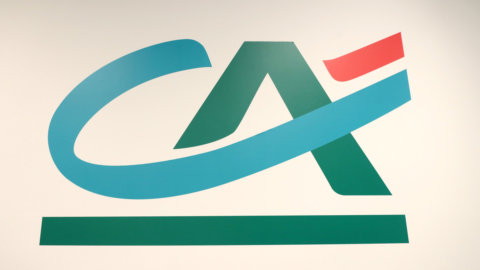Even traveling pollutes. Even at sea. To take a first step towards decarbonisation in the nautical sector, at least for yachts, the Group Azimut-Benetti ed Eni Sustainable Mobility have signed a agreement for the provision and use of HVOlution, the biofuel produced with 100% renewable raw materials. “It's about the first chord relating to the yachting industry aimed at the decarbonisation of the pleasure boating sector”, says a note from Eni.
Starting from summer 2023, the Azimut-Benetti Group will introduce HVOlution to replace the fossil fuel currently used by the Azimut and Benetti brands for technical tests of new yachts, sea trials and for handling prototype models. Furthermore, the new Azimut models can be delivered to owners with a first supply of HVOlution biofuel.
“For the Azimut-Benetti Group, this agreement represents a concrete step forward on the path set out to reduce CO2 emissions. A result that allows us to expand the area of action for the reduction of emissions by involving the supply chain, focusing on energy decarbonisation. Currently, more than half of Azimut's fleet consists of Low Emission boats and Benetti has built the largest hybrid yacht in the world, in addition to winning the "Green yacht of the year 2022" award with the 37mt BYond" declares Giovanna Vitelli, President of the Nautical Group.
Boating is responsible for 11% of transport pollution worldwide
The topic of transport pollution is always under observation. According to data published by the Emissions Database for Global Atmospheric Research (EDGAR), in 2020 it was the world of transport responsible for about a fifth of total CO2 emissions globally, which reach almost 36 billion tons. Of course, the preponderant weight of transport also emerges from the numbers road in terms of pollution they cover a slice of 78%. THE maritime means, according to the report, they are responsible for an 11%, mainly by large ships and ferries. Other shipowners are also moving towards sustainability, in various forms. San Lorenzo yacht in fact it uses a reformer with which methanol is transformed into hydrogen, the latter goes into a fuel cell which in turn chemically produces electricity and the residue is no longer CO2, but water vapour.
The characteristics of HVOlution biofuel
HVOlution is a biofuel composed al 100% from HVO (hydrogenated vegetable oil): it is produced in the biorefineries of Eni Sustainable Mobility in Venice and Gela from waste raw materials and vegetable residues or from oils generated from crops that do not compete with the food supply chain, in a circular economy model applied to mobility. If we consider the entire logistics-production chain, the reduction of emissions by HVOlution can reach up to 90% compared to the reference fossil mix, depending on the raw materials used for its production.
“This first supply of biofuel to the yachting sector confirms how Eni Sustainable Mobility can also accompany operators in the naval sector on the path towards decarbonisation. The agreement with the Azimut-Benetti Group is a first step which will be followed in the coming months by the expansion of sales of HVOlution also in the marine sector”, he declared Stefano Ballista, Chief Executive Officer of Eni Sustainable Mobility.
Distribution networks will be developed in the future
The collaboration between the Azimut-Benetti Group and Eni Sustainable Mobility will be inaugurated at the beginning of June with the first trip of the new Magellano 60 of Azimut, which will reach Taormina from Savona for the international première at the “Yachting Gala”, an event organized by Azimut for over 600 owners from all over the world.
Two other agreements by Eni for the sea: with Rina and with Energetica
The Italian oil giant led by CEO Claudio Descalzi is already moving in various directions to decarbonise the naval sector. In recent days Eni has signed an agreement with Rina, a multinational engineering inspection, certification and consulting company, to develop the use of green fuels on ships, the evaluation of the CO2 emissions of these fuels (from production to consumption) and the experimentation of carbon capture (CCS) on board.
Furthermore Fullness, the green arm of Eni, betrothed on Piazza Affari, has signed an agreement, through the subsidiary Be Charge, with Inside energy, the business unit of Energica Motor Company dedicated to the search for innovative solutions in green mobility and in particular to the installation of charging columns in Italian ports.





